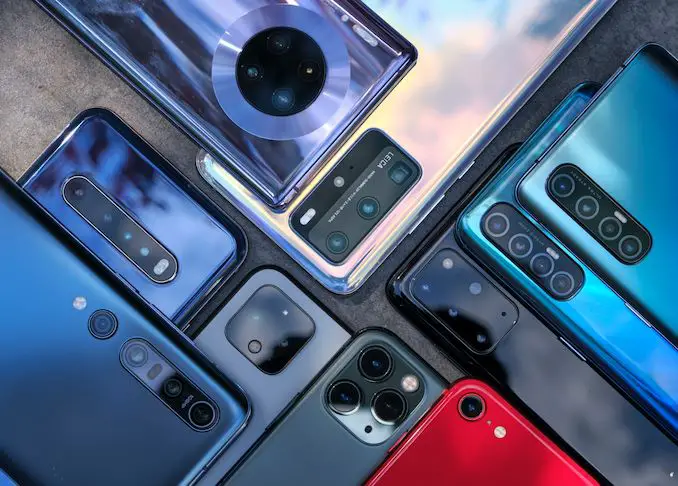Although the underlying operating system is similar, Android device users experience a different user experience depending on the manufacturer’s customization layer.
Not only does it have different user interfaces, special features, and unusual applications. In certain circumstances, the activities of manufacturers may also affect their users’ privacy, as claimed by a recent publication.
Android Mobile OS snooping by Samsung, Xiaomi, Huawei, and Realme handsets
The study developed jointly by researchers from Trinity College Dublin and the University of Edinburgh, reviewed the data managed and shipped by Android variants developed by six manufacturers: Samsung, Xiaomi, Huawei, Realme, LineageOS and /and/OS, a variant of Android that dispenses with any Google presence, developed by the founder of the Linux distribution Mandrake.

The study also notes that all of the smartphone manufacturers evaluated compile a list of all apps installed on a device, with the exception of / e / OS. This behavior jeopardizes users’ privacy, since it may reveal such personal things as their sexual orientation, political leaning, or religious beliefs.
Samsung, Xiaomi, Realme, and Google were all discovered to collect persistent device identifiers, such as the hardware serial number, along with other advertising identifiers that can be changed by the user in this study. The only exception is / e / OS, which was found not to transmit personal data according to the findings of this research. Long-lasting device identifiers, such as the hardware serial number, were also tracked by Samsung, Xiaomi, Realme, and Google in this study. It implies that even though a mobile device may be reset to erase an advertising identifier, it can still be identified as belonging to the same interest group, albeit incorrectly if the team changes ownership.
Xiaomi phones, for example, have a unique identifier called a “wake lock,” which is used to monitor how long it takes a user to unlock the screen after pressing the sleep/wake button. It is possible to tell when and for how long telephone calls are made if some data is balanced, according to these indicators. The data will likely be sent outside of Europe to Singapore, and the tracking mechanism will utilize technology similar to those utilized by web cookies and data.

It is worth noting that, with respect to Huawei, the integrated keyboard and its EMUI customization layer, Switkey —of Microsoft—, transmits information on the application’s use to its manufacturer (that is, the third party from Huawei), which distinguishes it from messaging search bars or the contact book.
Another disadvantage is that the computer systems that include Google, Microsoft, Linkedin, and Facebook software pre-installed gather data silently and without giving users a choice to opt-out.
The importance of analyzing the privacy of our mobiles
On the need to know this information, Professor Doug Leith, chair of informatics systems in the School of Computer Science and Statistics at Trinity College Dublin and co-author of this study, commented his opinion with his house of studies.
“I think we have completely lost the massive and continuous collection of data by our phones, for which there is no opt-out. We have focused too much on web cookies and misbehaving apps. I hope our work acts as a wake-up call for the public, politicians and regulators. Meaningful action is urgently needed to give people real control over the data coming out of their phones.”
-Professor Doug Leith
Spinning finer, the study’s other author, Dr. Paul Patras, associate professor at the School of Informatics at the University of Edinburgh, said:
“Although we have seen personal information protection laws adopted in several countries in recent years, including the EU member states, Canada and South Korea, user data collection practices remain widespread. Most worryingly, such practices take place “under the hood” on smartphones without the knowledge of users and without an accessible means of disabling such functionality. However, privacy-conscious Android variants are gaining traction and our findings should incentivize market leading vendors to follow suit.”
-Dr. Paul Patras





